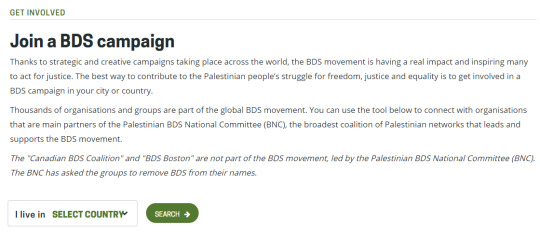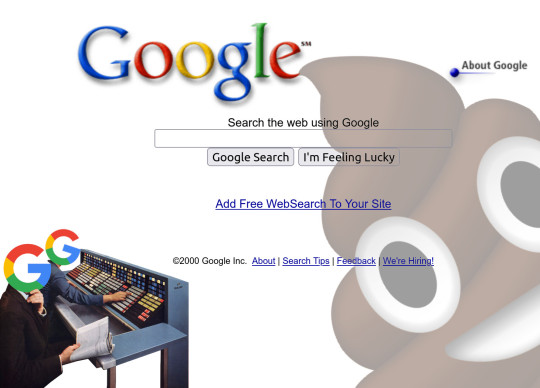#customized products reasonable
Text
Oh yeah no update today I should have something out for Tuesday's update though! Updates will probably be a bit spotty for a bit because of work and I've been feeling burnt out lately.
#we're preparing for our cycle count at work which means we have to count ALL of our product (which is. a lot)#that and customers have been super cranky for some reason lately#a lot of home /health stuff too as usual#but yeah ill try to update at least once a week but i really cant promise anything rn#crickettalks
28 notes
·
View notes
Text
I know there are as many religious good guys as there are religious bad guys in IDW, but I think I pinned down the reason why it feels like the most prominent religious figures are all bad guys and it's pretty much due to the worldbuilding.
Maybe my memory of the comics is just really bad, but the religious worldbuilding in IDW is....kind of trash honestly. I'm not sure there's a single religion or religious custom that doesn't exist solely to further the plot along. Like, it's one thing for the Camiens to worship the Primes and that causes a lot of stuff in exRID/OP, but what does that worship actually look like? What are their holidays, customs, religious texts? What about "spectralism" which basically the only thing we know about is the Festival of the Lost Light and some hippie color coding and aura shit? Like sure, there are characters who are religious and their beliefs come into play sometimes, but it honestly feels (especially in MTMTE) more like their religiousness only exists when it's relevant to the plot and it's just kinda. Disappointing eh. Lacking in worldbuilding. Plus the more religious a character is the more it's written as their entire personality and the driving force making them evil so it just kinda made me cringe to read honestly.
#squiggposting#i think there might be more 'religious moments' than i remember since it's been a hot minute since i read#but i remember during my first read/while liveblogging it was something that disappointed me#i know it's probably unfair or whatever but it still makes me cringe so hard#that the reason tyrest suddenly became a religious zealot was because he got shot with a brain altering bullet#and his religious fervor is almost literally just a product of him being brain damaged and delusional#like oooooooooooooooooooooooof it's so fucking cringe lol#i'm not sure if i'm making sense honestly. it's not so much the NUMBER of evil vs non evil religious characters#but it's more like. the more prominently religion is part of a character's personality or motivation#the odds of them just being an evil guy shoots up to almost 100%#also then there's dr/ft who's a fucking clown and 'spectralism' is just some half baked hippie shit i can't take seriously#guess my problem isn't with IDW so much as it is with JRO lol#anyways not an objective analysis i might be wrong on some counts that was just my feelings as i read#and also i just don't like it when the worldbuilding around culture only exists when it comes to plot related stuff#it really makes the world feel less lived in/realistic when it's established that there are multiple religions#but then as far as actual customs- beliefs- texts- philosophies- etc there's hardly anything#so the good guys may be religious but there's not much about what their beliefs actually entail and how they impact their daily life#and on the other hand the bad guys are screaming about how they're god's chosen all over the place
14 notes
·
View notes
Text
me: oh sorry we don't sell this
customer: *looks at me with skepticism and scopes out every shelf before asking me again*
me: I'm really certain we don't have this sir
*he walks off*
(two minutes later)(in the distance) my coworker: oh sorry sir we don't have this

#personal#I'm gonna fucking EXPLODE#like yeah I'm used to it#I'm used to people always thinking I'm lying about everything (for god knows what reason-)#but it's usually like... people I KNOW#why do even STRANGERS instantly get the vibes that I'm untrustworthy (or perhaps they just think I'm incompetent and stupid)#I TOLD you. I fucking TOLD YOU WE DON'T HAVE IT#bet you feel pretty damn dumb asking about that again thinking you'd get a different answer#I don't even know why he didn't believe me#cause I helped him find another product instantly just moments before he asked#like I know I usually sound uncertain and say 'oh I don't THINK we sell this'#which makes customers think I don't actually know and go double check with my colleague#but this time I was confident and tried to sound firm on the fact that we. don't. have. it.#like I guess that's not the problem :/
2 notes
·
View notes
Text
i think if i go to work today i may actually explode or turn into a puddle of mush or some other sort of physical manifestation of a mental breakdown
#i mean i will still go it wouldnt be fair on my coworkers#but fucking hell i dont want toooooo#so anxious!!!! and for what!!!!!#did maybe have a little cry at work yesterday and yet that apparently wasnt enough to get it out of my system#i hate customers can they go die please#sick of being humiliated constantly!!!! all my life ive felt constantly humiliated!!!! humiliated as a child continue to be humiliated by my#disabilities and body malfunctioning as an adult!!!! and now humiliated everyday by rich middle class customers who think they are better#than me and that anyone who works in fast food must be stupid!!!!! which is not true!!!!! but even if it was thats no reason to look down#on someone!!!!!!#hateeee that i feel like i as a person am being sold as a product too hate that i have to have a name badge and be perceived want to hide#under my covers in my flat and only think about a-yao forever#how a-yao put up with constant and worse humiliation for so long is actually insane#<-linking everything back to ayao to make me feel better lol
5 notes
·
View notes
Text
There's a talk about how bad live service games are from a consumer standpoint between the predatory "micro" transactions and how it removes access to games consumers paid for (just check out the latest Ubisoft controversy where they'll straight up delete your account—including games you paid for—if you don't respond to an email in time) but something that gets talked about less is how it gives companies the ability to straight up change how characters/classes/weapons/etc function and how that can make it hard or impossible for people to keep playing.
There is an understood risk of playing, say, an MMO where your character(s) could be changed at any given balance patch but it's assumed that playability would stay in the same realm, or at least low-intensity builds (builds that have less buttons to push and more downtime) would be left alone since LI builds rarely are top-performers.
But with live service games being what they are, all it takes is a change of design lead or balance lead to decide that LI builds are bad actually and to change them with no warning. Then "git gud-ers" come out of the woodwork to defend the change that was never asked for, wasn't game-breaking, and never so much as hinted to be a problem until right that moment.
You can't "git gud" wrist issues.
You can't "git gud" slow reflexes.
You can't "git gud" missing fingers/limbs.
You can't "git gud" brain processing speed.
And so on.
But because of the nature of live service/always online games, there's no way to avoid it as you can't simply not update the game to avoid the changes, not unless you don't want to play at all.
Or you pirate it and have a private server to run said pirated version on.
Accessibility matters. A lot. But it's not taken seriously and there's still the pervasive idea that if anyone so much as mentions video game, accessibility they're just being lazy and need to "git gud". With the lack of physical ownership or being able to opt-out of drastic changes, all it takes is someone in a studio to ascribe to that idea who has the power to push changes and people who prefer/can only play with LI builds can find themself suddenly not being able to play whatsoever.
#i totally love waking up one morning and having a character i invested years into being literally unplayable for me /s#or having people shit on me because i use li builds (even though i often perform better than meta builds because i pay attention)#or voicing criticism to game design/studio direction being taken to mean i'm being lazy and want everything handed to me#petition to start calling 'players' 'customers' instead because real money is (often) spent and that's the actual relationship#a company drastically changes a product year(s) after someone bought it should not be allowed#or they should have a damned good reason to do so beyond 'we felt like it'#video games#games#accessibility#fuck 'git gud'
11 notes
·
View notes
Text
it is so fucking cowardly for target to remove like half their pride collection in capitulation to fascists
#like removing from stores would be bad enough but at least the threats to employees were a somewhat valid reason#but removing it from online? that's just plain old capitulation. giving in to fascists#corporate pride will only show up when they see it as financially viable but when bigot customers stir up outcry? vanishes#like they pulled almost the entire ash&chess collection besides a hat#and ALL their products said 'trans people belong' or 'queer' etc like be fucking serious#this is why I can't take those 'oh but corporate pride is good actually' posts like they only care about money babes#now that the political landscape is getting more and more violently anti-queer and anti-trans they're simply dipping
8 notes
·
View notes
Text
Funny that every single fat person is accused of promoting obesity for simply existing- but somehow tobacco companies aren't held similarly responsible for selling a product that causes all kinds of health risks and cancers- fat people are held accountable for their "cost" to the healthcare system but never once have I heard anyone argue for shutting down tobacco companies under the grounds of promoting and glorifying cancer and only existing to sell poison to addicted customers for the sole purposes of their own profits.
Like it's very strange how little we shit on tobacco companies for doing everything we accuse fat people of down to actually costing the healthcare system money, which I doubt fat people do more than anyone else as fat people report delaying doctors visits for as long as possible to avoid weight based discrimination. I just think it's baffling that fat people face systemic oppression for existing because we think we can Individual Choice them into being thin, but we can't Individual Choice tobacco company execs into shutting down a business that exits entirely to get people addicted to cancer causing products to the point of being an ongoing public health crisis. We can't shut up about The Obesity Epidemic ™️ but them stats on tobacco deaths? Well I guess no one can be Systemically Shamed into fixing that except the smokers whom we shame via disgusting images on the back of cigarette packages. Because somehow that's how tobacco companies can be held responsible for getting people addicted to cancer causing products, acting like the customer is responsible for the company selling it.
#winters ramblings#anyway holding fat people more accountable for a puic health crisis for existing than tobacco companies for PROFITING OFF a self created#health crisis? good lord clutch your perals you cant treat companies with the same amount of accountability you expect out of individuals!#how could you ever expect international businesses selling poison to people to not do that because theyve created a health crisis?#anyway maybe if we start following fat people around making trumoet noises theyll stop being fat finally#because this works to fix the obesity epidemic but not for business regulation even though the evidence says the opposite is true#very curious that#also tobacco companies LITERALLY DID glorify smoking into making it look cool in a way fat people could never#fat people have never been regulated into not selling weight gaining agents under the guise of purposefully getting people Super Fat#and Addicted to Weight Gain Product that also causes a billion cancers even if people are in the same room as the SMOKE of the product#like fat people simply are not glorifying or promoting anything by saying maybe you should fucking hate yourself#if youre not stick thin. self hatred is NEVER beneficial for mental health and shitting on fat people DOES NOT HELP#study after study has shown making people feel like shit about themselves shockingly does not lead to self improvement#can i say anything positive at ALL about tobacco companies? no because they ACTUALLY DID what we acuse fat people of#they purposefully ran misinfo campaigns on the saftey of their product and denied second hand smoke camcer claims#until they literally could not do so any fucking more and they STILL arent held as responsible for the damage their products#cause to public health- their CUSTOMERS are held responsible for that#strange that regulatijg everything about fat people despite the evidence that it DOESNT WORK isnt a good enough reason#to abandon that method and company regulation is ALSO eildly sucessful but thats not good enough evidence to adopt it#i wonder if thats because Certian Political Beliefs in Power are protecting themselves frim any real systemic change#in an effort to preserve their wealth and power 🧐🧐
14 notes
·
View notes
Text
my spicy hot take of the day is that fanfiction as a medium is inextricably tied up with the capitalist mode of media production
#basically fanfiction can only exist as a construct if a) intellectual property laws exist#and b) that media (literature film etc.) is seen primarily as a product to be consumed by and to bring enjoyment to a viewer (customer)#the idea that an individual paying customer's enjoyment is the primary reason for a work of art to exist#is central to the entire concept of fanfic imo#i'm not making a value/moral judgment on this but i think it is a fact#text
4 notes
·
View notes
Text
I got an email from Alice’s Collections today that dollbei jun has shipped!! :D

Which means i really need to figure out a) am i going to dye him or just airbrush and cross my fingers it doesn’t chip too badly (i don’t really tend to play with my dolls but do want to get a better camera to take more pictures) and b) finish sketching the outfit pieces i’ll need and make some mock-ups so i can test the fit when he gets here to make the final ones-which may involve being extra and trying to use the embroidery function on my machine, c) finishing some eyes (it’s been raining a lot lately and i’ve been sick for over a week now so i haven’t done that but that feels like the easier task atm), and d) place an order for boots, possibly accessories, stands, and maybe a basic wig or wig making supplies. I hate making wigs but i also may want to be weirdly picky with the hair color. i’m not sure xD
#quill's bjd adventures#dollbei jun#i'm so excited!! let's hope i don't psych myself out of actually working on him xD#also that the pieces of fabric i have are in fact big enough xD#i have 0 sense of spatial reasoning and am not using a pattern that tells me how much i need so i guessed#i can guess fairly well for human sized clothes because i've been making those for so long but doll clothing is another story#also on this list: rearrange my office and assemble the billy shelf i got that will be the doll shelf since it has doors#i wanted to know if the hauga would be big enough because i could've stacked it on some other smaller shelves i have as a base#but ikea's customer service was liek sorry we can't tell you the inner dimensions you have to go to the store for that#like...what is the point of product customer service if they can't tell me product details....?#anyway i am going to try not to feel guilty that the billy means one pair will end up closer to the floor#which is a silly thing to feel guilty about with inanimate objects but w/e. i stopped questioning my brain's oddities a while ago xD#and maybe when we move eventually i will find a better display where they're all more or less eye level
4 notes
·
View notes
Text
of all things why am I autistic about Printers
#cmyk as a color scheme will control my life for the rest of forever#like idk its silly! idk im intoxicated so words hard but like. i like working with printers#i work in print production i make books all day of peoples financial stuff#that aspect is boring but it doesnt matter i get to feed the printers toner and paper and take care of them and also like#again cmyk is the color scheme ever i love changing the toner because i get to see the color#also my fuckijg fursona is a ferret made of printer ink. hes also an oc tho#imaginign all sorts of print shop shenanigans with him#i did retail printing for a while and i LOVE making business cards. and photo cards. but i hate customers 💗#so i had to leave retail printing. i miss the card printer my specific staples had. i mean i still work there i can go use it whenever#thats one of the reasons i stay employed there lmao#sorry rambling
5 notes
·
View notes
Text
we've found it folks: mcmansion heaven
Hello everyone. It is my pleasure to bring you the greatest house I have ever seen. The house of a true visionary. A real ad-hocist. A genuine pioneer of fenestration. This house is in Alabama. It was built in 1980 and costs around $5 million. It is worth every penny. Perhaps more.

Now, I know what you're thinking: "Come on, Kate, that's a little kooky, but certainly it's not McMansion Heaven. This is very much a house in the earthly realm. Purgatory. McMansion Purgatory." Well, let me now play Beatrice to your Dante, young Pilgrim. Welcome. Welcome, welcome, welcome.


It is rare to find a house that has everything. A house that wills itself into Postmodernism yet remains unable to let go of the kookiest moments of the prior zeitgeist, the Bruce Goffs and Earthships, the commune houses built from car windshields, the seventies moments of psychedelic hippie fracture. It is everything. It has everything. It is theme park, it is High Tech. It is Renaissance (in the San Antonio Riverwalk sense of the word.) It is medieval. It is maybe the greatest pastiche to sucker itself to the side of a mountain, perilously overlooking a large body of water. Look at it. Just look.

The inside is white. This makes it dreamlike, almost benevolent. It is bright because this is McMansion Heaven and Gray is for McMansion Hell. There is an overbearing sheen of 80s optimism. In this house, the credit default swap has not yet been invented, but could be.

It takes a lot for me to drop the cocaine word because I think it's a cheap joke. But there's something about this example that makes it plausible, not in a derogatory way, but in a liberatory one, a sensuous one. Someone created this house to have a particular experience, a particular feeling. It possesses an element of true fantasy, the thematic. Its rooms are not meant to be one cohesive composition, but rather a series of scenes, of vastly different spatial moments, compressed, expanded, bright, close.

And then there's this kitchen for some reason. Or so you think. Everything the interior design tries to hide, namely how unceasingly peculiar the house is, it is not entirely able to because the choices made here remain decadent, indulgent, albeit in a more familiar way.

Rare is it to discover an interior wherein one truly must wear sunglasses. The environment created in service to transparency has to somewhat prevent the elements from penetrating too deep while retaining their desirable qualities. I don't think an architect designed this house. An architect would have had access to specifically engineered products for this purpose. Whoever built this house had certain access to architectural catalogues but not those used in the highest end or most structurally complex projects. The customization here lies in the assemblage of materials and in doing so stretches them to the height of their imaginative capacity. To borrow from Charles Jencks, ad-hoc is a perfect description. It is an architecture of availability and of adventure.

A small interlude. We are outside. There is no rear exterior view of this house because it would be impossible to get one from the scrawny lawn that lies at its depths. This space is intended to serve the same purpose, which is to look upon the house itself as much as gaze from the house to the world beyond.

Living in a city, I often think about exhibitionism. Living in a city is inherently exhibitionist. A house is a permeable visible surface; it is entirely possible that someone will catch a glimpse of me they're not supposed to when I rush to the living room in only a t-shirt to turn out the light before bed. But this is a space that is only exhibitionist in the sense that it is an architecture of exposure, and yet this exposure would not be possible without the protection of the site, of the distance from every other pair of eyes. In this respect, a double freedom is secured. The window intimates the potential of seeing. But no one sees.

At the heart of this house lies a strange mix of concepts. Postmodern classicist columns of the Disney World set. The unpolished edge of the vernacular. There is also an organicist bent to the whole thing, something more Goff than Gaudí, and here we see some of the house's most organic forms, the monolith- or shell-like vanity mixed with the luminous artifice of mirrors and white. A backlit cave, primitive and performative at the same time, which is, in essence, the dialectic of the luxury bathroom.

And yet our McMansion Heaven is still a McMansion. It is still an accumulation of deliberate signifiers of wealth, very much a construction with the secondary purpose of invoking envy, a palatial residence designed without much cohesion. The presence of golf, of wood, of masculine and patriarchal symbolism with an undercurrent of luxury drives that point home. The McMansion can aspire to an art form, but there are still many levels to ascend before one gets to where God's sitting.
If you like this post and want more like it, support McMansion Hell on Patreon for as little as $1/month for access to great bonus content including a discord server, extra posts, and livestreams.
Not into recurring payments? Try the tip jar! Student loans just started back up!
41K notes
·
View notes
Text

🇵🇸 From BDS:
This year’s Israeli Apartheid Week will be the most important since IAW was launched 20 years ago! With the ongoing Nakba at its height, Israel is carrying out the world’s first ever live-streamed genocide against 2.3 million Palestinians in Gaza while it continues to entrench its 75-year-old settler-colonial apartheid regime against all Indigenous Palestinians.
Over the past few months, people around the world have carried out inspiring actions building people power to end state, corporate and institutional complicity in Israel’s #GazaGenocide and contribute to the Palestinian struggle for freedom, justice, and equality. With the failure of the international system, under US and Western hegemony, on full display, we will organize IAW throughout the month of March to bring justice from below.
Save the date - March 1st - March 30th; an entire month of action and BDS mobilizations to end complicity in genocide, build grassroots power towards liberation and the dismantling of Israel’s settler-colonial apartheid regime. Let’s make this year’s IAW our most impactful ever!
In anticipation of the upcoming Israeli Apartheid Week, BDS has called for an escalation of our boycott campaigns.
To find out how you can join a specific BDS campaign, or how you can contribute towards IAW, you can use the search function on their website to find a BDS-affiliated organization in your country.

If you and your organization have an event planned for Israeli Apartheid Week (IAW), you can register them with BDS here.
🇵🇸 For individuals unaffiliated with an org, you can still support and participate in IAW by:
Boycotting all products from Israel and from companies profiting off the occupation of Palestine. Here are the official BDS targets. For a more extensive list of products, check in with one of the BDS affiliated organizations in your country (they might tell you, for instance, what processed food items at your local grocery store should be avoided).
Share information about BDS on social media, with friends and family, and with your local community.
For BDS targeted brands, refrain from making or sharing any content that helps that company's outreach and branding. No more memes mentioning the brand, no pictures showing their logo, no more free advertising. Boycotting here isn't just about the loss you as a costumer can inflict on the company by not purchasing their product, it's also about damaging the brand's reputation, and limiting their customer outreach.
I highly encourage you to join a BDS-affiliated org, but if for whatever reason you can't, then these are concrete and actionable steps you can take.
Again, for more information about BDS and Israeli Apartheid Week, you check in with the official BDS website.
#free palestine#palestine#israel#gaza#bds#boycott divest sanction#i'll set this up to be queued throughout feb/mar#and i'll also be sharing more BDS info/campaigns on this blog
10K notes
·
View notes
Video
youtube
Why are customers not interested in buying your products? #salessuccess ...
#youtube#There could be several reasons why customers might not be interested in buying a company's products: Lack of awareness: Customers might not
0 notes
Text
it is absolutely asinine the type of shitty, shitty products American specialty footwear companies will put on the market and boast about on their websites. like you fuckin idiots, your "top-of-the line quality!" boot has only 20 reviews on it and they all say that the damn things literally fall apart at the seams on the first or second wear!!!
#look i know tumblr isn't the place for this but I'm so fucking fed up with this bullshit. been trying to replace this wonderful pair of#hunting boots i had back in college for THREE YEARS NOW and i cannot for the life of me find anything even remotely sufficient#(that would actually fit me.......... looking at you men's footwear retail sizes 🙃🙃🙃🙃)#like legitimately all of it is either 1) total cheap garbage or 2) WAYY out of my price range#or 3) got some kind of vibrant pink or ''ooh look we made an Outdoor Product™ but for ✨ladies✨'' nonsense about it#OR 4) is from an otherwise reputable compwny but has the stupidest most non-ergonomic design in the world????????#for god knows what f-ing reason.#like seriously Irish Setter you've had that shoe design for 3+ YEARS NOW and you've been getting poor customer ratings on it the ENTIRE TIME#because it makes literally no sense to wrap the sole up around the boot and make the exact place that the shoe should *bend* with your foot#be stiff instead of fucking flexible???? like? news flash guys this is a fucking SHOE. you're supposed to WALK in it.#um. anyway.#sorry for this it just infuriates me and I'm so done. SO done.#I'm just gonna have to learn how to make my own goddamn shoes since no one else can do it right#shoulda followed my dad's footsteps (hah 😉) and gone into footwear
1 note
·
View note
Text
Some positivity in these turbulent AI times
*This does not minimize the crisis at hand, but is aimed at easing any anxieties.
With every social media selling our data to AI companies now, there is very little way to avoid being scraped. The sad thing is many of us still NEED social media to advertise ourselves and get seen by clients. I can't help but feeling that we as artists are not at risk of losing our livelihoods, here is why:
Just because your data is available does not mean that AI companies will/want to use it. Your work may never end up being scraped at all.
The possibility of someone who uses AI art prompts can replace you (if your work is scraped) is very unlikely. Art Directors and clients HAVE to work with people, the person using AI art cannot back up what a machine made.
Their final product for a client will never be substantial since AI prompts cannot be consistent with use and edits requested will be impossible.
AI creators will NEVER be able to make a move unless us artists make a move first. They will always be behind in the industry.
AI creators lack the fundamental skills of art and therefore cannot detect when something looks off in a composition. Many professional artists like me get hired repeatedly for a reason! WE as artists know what we're doing.
The art community is close-knit and can fund itself. Look at furry commissions, Patreon, art conventions, Hollywood. Real art will always be able to make money and find an audience because it's how we communicate as a species.
AI creators lack the passion and ambition to make a career out of AI prompts. Not that they couldn't start drawing at any time, but these tend to be the people who don't enjoy creating art to begin with.
There is no story or personal experience that can be shared about AI prompts so paying customers will lose interest quickly.
Art is needed to help advance society along, history says so. To do that, companies will need to hire artists (music, architecture, photography, design, etc).
The best way for us artists to keep fighting for our voice to be heard right now is staying visible. Do not hide or give in! That is what they want. Continue posting online and/or in person and sharing your art with the world. It takes a community and we need you!
#text#ai#artists on tumblr#art#im usually right#whenever I feel mostly calm in a crisis it's a good sign
5K notes
·
View notes
Text
Google’s enshittification memos

[Note, 9 October 2023: Google disputes the veracity of this claim, but has declined to provide the exhibits and testimony to support its claims. Read more about this here.]

When I think about how the old, good internet turned into the enshitternet, I imagine a series of small compromises, each seemingly reasonable at the time, each contributing to a cultural norm of making good things worse, and worse, and worse.
Think about Unity President Marc Whitten's nonpology for his company's disastrous rug-pull, in which they declared that everyone who had paid good money to use their tool to make a game would have to keep paying, every time someone downloaded that game:
The most fundamental thing that we’re trying to do is we’re building a sustainable business for Unity. And for us, that means that we do need to have a model that includes some sort of balancing change, including shared success.
https://www.wired.com/story/unity-walks-back-policies-lost-trust/
"Shared success" is code for, "If you use our tool to make money, we should make money too." This is bullshit. It's like saying, "We just want to find a way to share the success of the painters who use our brushes, so every time you sell a painting, we want to tax that sale." Or "Every time you sell a house, the company that made the hammer gets to wet its beak."
And note that they're not talking about shared risk here – no one at Unity is saying, "If you try to make a game with our tools and you lose a million bucks, we're on the hook for ten percent of your losses." This isn't partnership, it's extortion.
How did a company like Unity – which became a market leader by making a tool that understood the needs of game developers and filled them – turn into a protection racket? One bad decision at a time. One rationalization and then another. Slowly, and then all at once.
When I think about this enshittification curve, I often think of Google, a company that had its users' backs for years, which created a genuinely innovative search engine that worked so well it seemed like *magic, a company whose employees often had their pick of jobs, but chose the "don't be evil" gig because that mattered to them.
People make fun of that "don't be evil" motto, but if your key employees took the gig because they didn't want to be evil, and then you ask them to be evil, they might just quit. Hell, they might make a stink on the way out the door, too:
https://theintercept.com/2018/09/13/google-china-search-engine-employee-resigns/
Google is a company whose founders started out by publishing a scientific paper describing their search methodology, in which they said, "Oh, and by the way, ads will inevitably turn your search engine into a pile of shit, so we're gonna stay the fuck away from them":
http://infolab.stanford.edu/pub/papers/google.pdf
Those same founders retained a controlling interest in the company after it went IPO, explaining to investors that they were going to run the business without having their elbows jostled by shortsighted Wall Street assholes, so they could keep it from turning into a pile of shit:
https://abc.xyz/investor/founders-letters/ipo-letter/
And yet, it's turned into a pile of shit. Google search is so bad you might as well ask Jeeves. The company's big plan to fix it? Replace links to webpages with florid paragraphs of chatbot nonsense filled with a supremely confident lies:
https://pluralistic.net/2023/05/14/googles-ai-hype-circle/
How did the company get this bad? In part, this is the "curse of bigness." The company can't grow by attracting new users. When you have 90%+ of the market, there are no new customers to sign up. Hypothetically, they could grow by going into new lines of business, but Google is incapable of making a successful product in-house and also kills most of the products it buys from other, more innovative companies:
https://killedbygoogle.com/
Theoretically, the company could pursue new lines of business in-house, and indeed, the current leaders of companies like Amazon, Microsoft and Apple are all execs who figured out how to get the whole company to do something new, and were elevated to the CEO's office, making each one a billionaire and sealing their place in history.
It is for this very reason that any exec at a large firm who tries to make a business-wide improvement gets immediately and repeatedly knifed by all their colleagues, who correctly reason that if someone else becomes CEO, then they won't become CEO. Machiavelli was an optimist:
https://pluralistic.net/2023/07/28/microincentives-and-enshittification/
With no growth from new customers, and no growth from new businesses, "growth" has to come from squeezing workers (say, laying off 12,000 engineers after a stock buyback that would have paid their salaries for the next 27 years), or business customers (say, by colluding with Facebook to rig the ad market with the Jedi Blue conspiracy), or end-users.
Now, in theory, we might never know exactly what led to the enshittification of Google. In theory, all of compromises, debates and plots could be lost to history. But tech is not an oral culture, it's a written one, and techies write everything down and nothing is ever truly deleted.
Time and again, Big Tech tells on itself. Think of FTX's main conspirators all hanging out in a group chat called "Wirefraud." Amazon naming its program targeting weak, small publishers the "Gazelle Project" ("approach these small publishers the way a cheetah would pursue a sickly gazelle”). Amazon documenting the fact that users were unknowingly signing up for Prime and getting pissed; then figuring out how to reduce accidental signups, then deciding not to do it because it liked the money too much. Think of Zuck emailing his CFO in the middle of the night to defend his outsized offer to buy Instagram on the basis that users like Insta better and Facebook couldn't compete with them on quality.
It's like every Big Tech schemer has a folder on their desktop called "Mens Rea" filled with files like "Copy_of_Premeditated_Murder.docx":
https://doctorow.medium.com/big-tech-cant-stop-telling-on-itself-f7f0eb6d215a?sk=351f8a54ab8e02d7340620e5eec5024d
Right now, Google's on trial for its sins against antitrust law. It's a hard case to make. To secure a win, the prosecutors at the DoJ Antitrust Division are going to have to prove what was going on in Google execs' minds when the took the actions that led to the company's dominance. They're going to have to show that the company deliberately undertook to harm its users and customers.
Of course, it helps that Google put it all in writing.
Last week, there was a huge kerfuffile over the DoJ's practice of posting its exhibits from the trial to a website each night. This is a totally normal thing to do – a practice that dates back to the Microsoft antitrust trial. But Google pitched a tantrum over this and said that the docs the DoJ were posting would be turned into "clickbait." Which is another way of saying, "the public would find these documents very interesting, and they would be damning to us and our case":
https://www.bigtechontrial.com/p/secrecy-is-systemic
After initially deferring to Google, Judge Amit Mehta finally gave the Justice Department the greenlight to post the document. It's up. It's wild:
https://www.justice.gov/d9/2023-09/416692.pdf
The document is described as "notes for a course on communication" that Google VP for Finance Michael Roszak prepared. Roszak says he can't remember whether he ever gave the presentation, but insists that the remit for the course required him to tell students "things I didn't believe," and that's why the document is "full of hyperbole and exaggeration."
OK.
But here's what the document says: "search advertising is one of the world's greatest business models ever created…illicit businesses (cigarettes or drugs) could rival these economics…[W]e can mostly ignore the demand side…(users and queries) and only focus on the supply side of advertisers, ad formats and sales."
It goes on to say that this might be changing, and proposes a way to balance the interests of the search and ads teams, which are at odds, with search worrying that ads are pushing them to produce "unnatural search experiences to chase revenue."
"Unnatural search experiences to chase revenue" is a thinly veiled euphemism for the prophetic warnings in that 1998 Pagerank paper: "The goals of the advertising business model do not always correspond to providing quality search to users." Or, more plainly, "ads will turn our search engine into a pile of shit."
And, as Roszak writes, Google is "able to ignore one of the fundamental laws of economics…supply and demand." That is, the company has become so dominant and cemented its position so thoroughly as the default search engine across every platforms and system that even if it makes its search terrible to goose revenues, users won't leave. As Lily Tomlin put it on SNL: "We don't have to care, we're the phone company."
In the enshittification cycle, companies first lure in users with surpluses – like providing the best search results rather than the most profitable ones – with an eye to locking them in. In Google's case, that lock-in has multiple facets, but the big one is spending billions of dollars – enough to buy a whole Twitter, every single year – to be the default search everywhere.
Google doesn't buy its way to dominance because it has the very best search results and it wants to shield you from inferior competitors. The economically rational case for buying default position is that preventing competition is more profitable than succeeding by outperforming competitors. The best reason to buy the default everywhere is that it lets you lower quality without losing business. You can "ignore the demand side, and only focus on advertisers."
For a lot of people, the analysis stops here. "If you're not paying for the product, you're the product." Google locks in users and sells them to advertisers, who are their co-conspirators in a scheme to screw the rest of us.
But that's not right. For one thing, paying for a product doesn't mean you won't be the product. Apple charges a thousand bucks for an iPhone and then nonconsensually spies on every iOS user in order to target ads to them (and lies about it):
https://pluralistic.net/2022/11/14/luxury-surveillance/#liar-liar
John Deere charges six figures for its tractors, then runs a grift that blocks farmers from fixing their own machines, and then uses their control over repair to silence farmers who complain about it:
https://pluralistic.net/2022/05/31/dealers-choice/#be-a-shame-if-something-were-to-happen-to-it
Fair treatment from a corporation isn't a loyalty program that you earn by through sufficient spending. Companies that can sell you out, will sell you out, and then cry victim, insisting that they were only doing their fiduciary duty for their sacred shareholders. Companies are disciplined by fear of competition, regulation or – in the case of tech platforms – customers seizing the means of computation and installing ad-blockers, alternative clients, multiprotocol readers, etc:
https://doctorow.medium.com/an-audacious-plan-to-halt-the-internets-enshittification-and-throw-it-into-reverse-3cc01e7e4604?sk=85b3f5f7d051804521c3411711f0b554
Which is where the next stage of enshittification comes in: when the platform withdraws the surplus it had allocated to lure in – and then lock in – business customers (like advertisers) and reallocate it to the platform's shareholders.
For Google, there are several rackets that let it screw over advertisers as well as searchers (the advertisers are paying for the product, and they're also the product). Some of those rackets are well-known, like Jedi Blue, the market-rigging conspiracy that Google and Facebook colluded on:
https://en.wikipedia.org/wiki/Jedi_Blue
But thanks to the antitrust trial, we're learning about more of these. Megan Gray – ex-FTC, ex-DuckDuckGo – was in the courtroom last week when evidence was presented on Google execs' panic over a decline in "ad generating searches" and the sleazy gimmick they came up with to address it: manipulating the "semantic matching" on user queries:
https://www.wired.com/story/google-antitrust-lawsuit-search-results/
When you send a query to Google, it expands that query with terms that are similar – for example, if you search on "Weds" it might also search for "Wednesday." In the slides shown in the Google trial, we learned about another kind of semantic matching that Google performed, this one intended to turn your search results into "a twisted shopping mall you can’t escape."
Here's how that worked: when you ran a query like "children's clothing," Google secretly appended the brand name of a kids' clothing manufacturer to the query. This, in turn, triggered a ton of ads – because rival brands will have bought ads against their competitors' name (like Pepsi buying ads that are shown over queries for Coke).
Here we see surpluses being taken away from both end-users and business customers – that is, searchers and advertisers. For searchers, it doesn't matter how much you refine your query, you're still going to get crummy search results because there's an unkillable, hidden search term stuck to your query, like a piece of shit that Google keeps sticking to the sole of your shoe.
But for advertisers, this is also a scam. They're paying to be matched to users who search on a brand name, and you didn't search on that brand name. It's especially bad for the company whose name has been appended to your search, because Google has a protection racket where the company that matches your search has to pay extra in order to show up overtop of rivals who are worse matches. Both the matching company and those rivals have given Google a credit-card that Google gets to bill every time a user searches on the company's name, and Google is just running fraudulent charges through those cards.
And, of course, Google put this in writing. I mean, of course they did. As we learned from the documentary The Incredibles, supervillains can't stop themselves from monologuing, and in big, sprawling monopolists, these monologues have to transmitted electronically – and often indelibly – to far-flung co-cabalists.
As Gray points out, this is an incredibly blunt enshittification technique: "it hadn’t even occurred to me that Google just flat out deletes queries and replaces them with ones that monetize better." We don't know how long Google did this for or how frequently this bait-and-switch was deployed.
But if this is a blunt way of Google smashing its fist down on the scales that balance search quality against ad revenues, there's plenty of subtler ways the company could sneak a thumb on there. A Google exec at the trial rhapsodized about his company's "contract with the user" to deliver an "honest results policy," but given how bad Google search is these days, we're left to either believe he's lying or that Google sucks at search.
The paper trail offers a tantalizing look at how a company went from doing something that was so good it felt like a magic trick to being "able to ignore one of the fundamental laws of economics…supply and demand," able to "ignore the demand side…(users and queries) and only focus on the supply side of advertisers."
What's more, this is a system where everyone loses (except for Google): this isn't a grift run by Google and advertisers on users – it's a grift Google runs on everyone.

If you'd like an essay-formatted version of this post to read or share, here's a link to it on pluralistic.net, my surveillance-free, ad-free, tracker-free blog:
https://pluralistic.net/2023/10/03/not-feeling-lucky/#fundamental-laws-of-economics


My next novel is The Lost Cause, a hopeful novel of the climate emergency. Amazon won't sell the audiobook, so I made my own and I'm pre-selling it on Kickstarter!
#pluralistic#enshittification#semantic matching#google#antitrust#trustbusting#transparency#fatfingers#serp#the algorithm#telling on yourself
6K notes
·
View notes